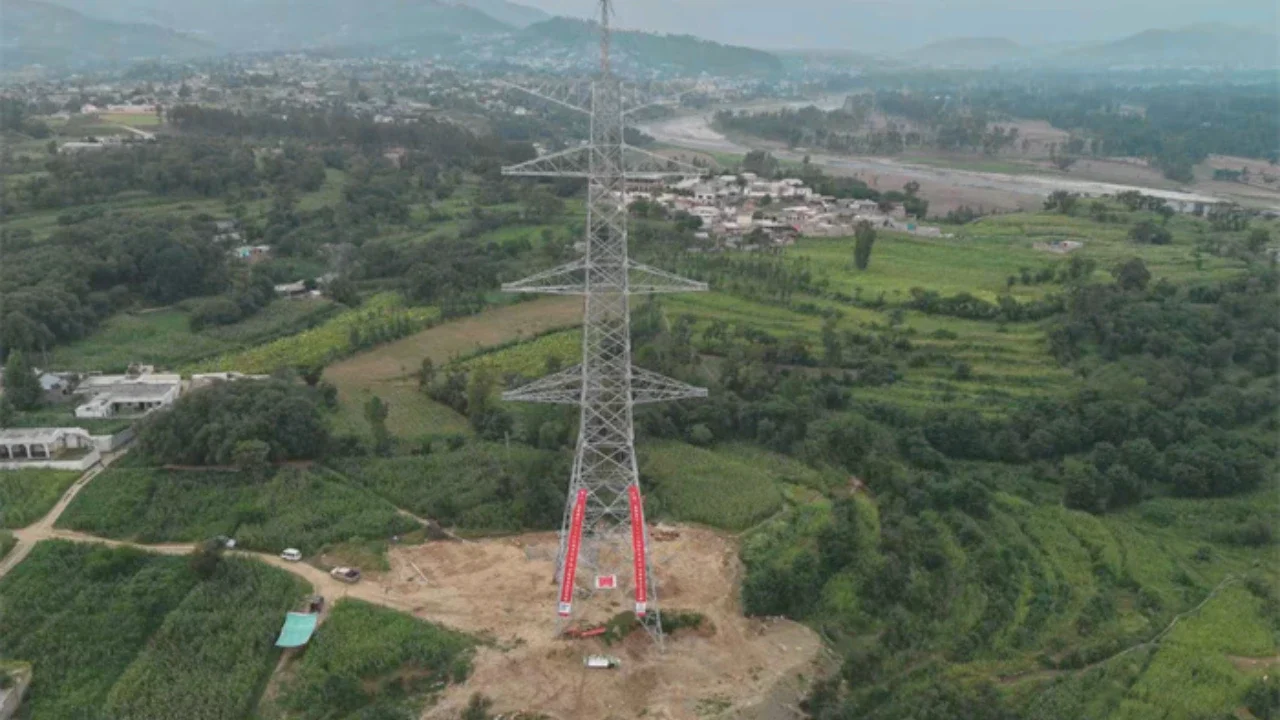By Ayesha Saba
A major project to boost Pakistan’s high-voltage electricity network is moving ahead, with significant progress reported and full completion expected by June 2026.
The World Bank-funded Dasu Transmission Line Project is designed to carry power from the huge Dasu Hydropower Project to cities across the country.
Overview of the Dasu Transmission Project
According to documents seen by Wealth Pakistan, the project has two main sections.
Lot-I runs from Dasu to Mansehra, covering 157 kilometers, while
Lot-II stretches from Mansehra to Islamabad West, covering 97.6 kilometers.
Progress Status of Dasu–Mansehra Line
As of September 29, 2025, the Dasu–Mansehra line has reached 38% physical completion and 21% financial progress. The total project cost is PKR 132,249.76 million.
This line is key for moving electricity generated at Dasu to the national grid.
Looking closer at the work done so far, design and engineering are fully finished, while 40% of the equipment has been procured.
Civil construction is 27% complete, installation work is at 15%, and testing and commissioning are yet to start.
Progress Status of Mansehra–Islamabad West Section
In the Mansehra–Islamabad West section, physical progress stands at 42% and financial progress at 34%.
Here, design and engineering are complete, procurement has reached 50%, civil works are 28% done, and installation work has just started at 2%.
This shows progress across several key areas
Cost and Significance of the Dasu Transmission Project
With a total estimated cost of PKR 132,249.76 million (USD 123.46 million plus PKR 11,070 million), the Dasu Transmission Project is part of Pakistan’s larger effort to improve its electricity grid.
The aim is to make the network more reliable and to carry more electricity from northern hydropower plants to other regions.
Future Impact on Pakistan’s Energy Security
Officials from the Ministry of Energy (Power Division) said the project is crucial for bringing clean, affordable hydropower into the national grid.
It will reduce Pakistan’s dependence on imported fuels and provide a steady power supply for northern and central areas.
Once finished, the Dasu–Mansehra–Islamabad transmission corridor will become a major route for high-capacity electricity transfer.
It will help use hydropower more efficiently and strengthen the country’s overall energy security.
Author Profile
-
Ayesha Saba is an economic journalist advocating for Pakistan's shift from unstable farming to high-value sectors.
Her sharp analysis of the central bank's report spotlights tourism and technology as vital engines for job creation and resilience, urging urgent policy pivots toward a **diverse and sustainable future.





